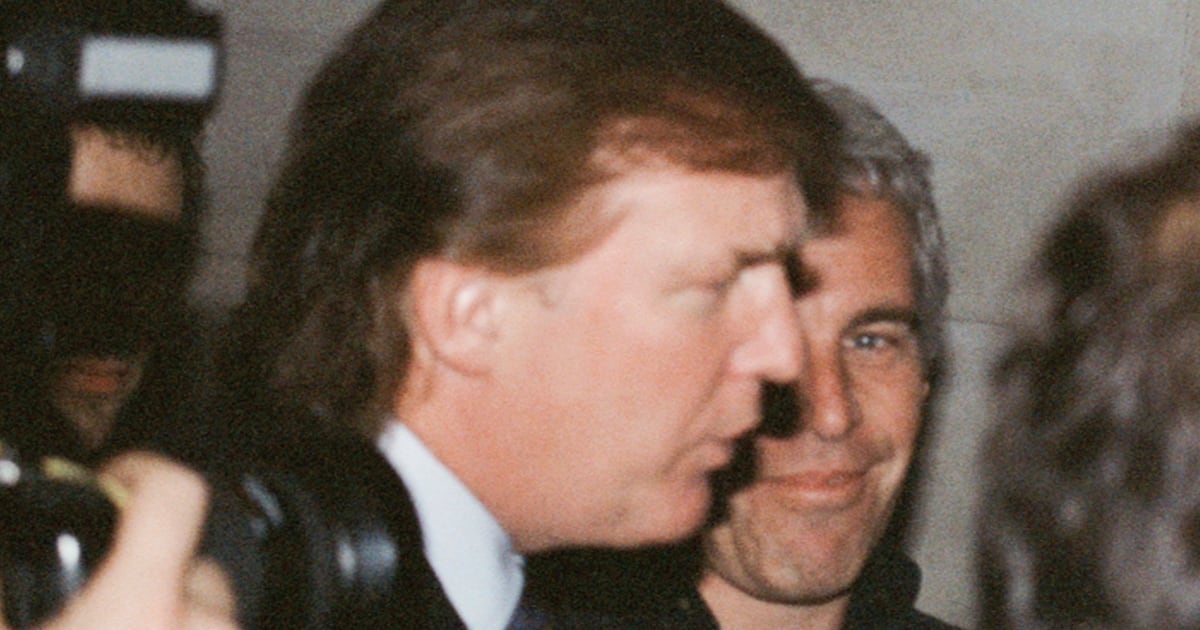After suffering a stunning loss in November he couldn’t accept, he railed against a corrupt system and claimed to have unspecified constitutional rights. He got caught on tape boasting about the crime, claimed the feds were trying to set him up, attacked a prosecutor, promised to poison the jury pool, and decried what he called a show trial. Ultimately, his fate was sealed on Jan. 20.
His name is Christopher Wilkins, not Donald Trump, and he also had a case before U.S. District Judge Aileen Cannon in South Florida.
The Daily Beast reviewed thousands of pages of court documents at Miami’s federal courthouse last week, as part of an examination of Cannon’s brief time on the bench, given that the relatively novice judge is presiding over one of the most important cases in American history—and has already made eye-popping decisions that blatantly favor the ex-president who appointed her.
The trial of Christopher Wilkins was one of Cannon’s very first. And the tale, as told in 500 pages of trial transcripts and dozens of court filings, shares eerie parallels with the historic case she now has before her.
Cannon is overseeing the criminal case against Trump over the way he hoarded classified documents at Mar-a-Lago. And Cannon keeps handing the former president minor victories at every turn.
Last year, when a lawsuit by Trump put the issue before her, she stalled the investigation until an appellate court forced her to back off. When the indictment finally came in June, Cannon was surprisingly assigned the case and immediately limited journalists’ activity in the courtroom, gave federal prosecutors a hard time, and set a trial date in May 2024—five months later than requested by Department of Justice Special Counsel Jack Smith.
The timing conveniently gives Trump the ability to compete in all the key primary state races as he seeks the Republican presidential nomination.
Just this week, she issued an oddly worded judicial order that went out of its way to reveal the existence of an ongoing federal grand jury investigation of Trump going on somewhere outside of South Florida—taken by some legal scholars as a personal snub to the DOJ’s special counsel.
In the meantime, Trump has been railing against “the Department of Injustice,” calling Smith “deranged,” complaining about “prosecutorial misconduct,” and saying that these are “bogus cases” trying to nail him for “a crime that they actually make up.”
“IF YOU GO AFTER ME, I’M COMING AFTER YOU!” he last threatened on Friday.
It was the most belligerent statement yet, following months of public insults directed at prosecutors and judges in Georgia, New York, and Washington warning about retribution from his followers.
Unlike U.S. District Judge Tanya Chutkan, who’s overseeing his other federal criminal case in Washington and immediately began to consider setting limitations, Cannon has yet to rein him in.
But she was nowhere near as accommodating the last time she encountered a case like this.
Like Trump, the event that landed Christopher Tavorris Wilkins in front of this federal judge started on a bad day in early November. In Wilkins’ case, it was the evening of Nov. 7, 2019, and he was sitting in a green chair inside a federal courtroom in Fort Lauderdale. Jurors had just read their verdict, declaring him guilty of transporting firearms illegally and intimidating a witness. As the jurors filed out of the room and Judge William Dimitrouleas thanked them for their service, Wilkins was enraged—so much so that he picked up his chair and threw it at the federal prosecutor across the room who was responsible for putting him away: John C. McMillan.

“I’ll kill you when I catch you, boy. Kill your fucking ass!” Wilkins yelled at him, as court deputies tackled him to the ground. “Done me a life sentence on the house, man. When I beat this shit, I’m going to kill you. That’s facts, man. That’s facts.”
U.S. Marshals surveillance footage and a court reporter’s audio captured the brawl and later got filed as evidence for a future criminal case.
Fast-forward more than a year later, and Wilkins found himself before Judge Cannon, facing new charges of assault and threatening to murder a United States attorney. Having already cycled through one defense lawyer—yet another Trump similarity—Wilkins was now at a pretrial hearing trying to dump his second one.
His aggressive comments might sound awfully familiar.
“I would also like to note in regards to the video and audio, because it is being altered. The audio is separate from the video, which is some type of strange,” he told the judge, warning her that he was going to tell the jurors everything as he perceived it.
“I am going to let the jurors know about this government corruption,” Wilkins told the judge. “I can tell the jurors. It doesn’t matter. We won’t start no trial. So… they will be polluted… that would sabotage the trial as well. So, I will show them everything.”
Cannon seemed to keep her composure, probing whether Wilkins was ready to drop his second lawyer if it meant he’d have to represent himself at trial—and abide by the rules of evidence.
“I want an opening statement by myself, and give the jurors every detail about this government corruption,” he said. “I am going to raise whatever issue I want.”
“The court is not going to permit you to introduce totally collateral, irrelevant subject matter,” Cannon countered.
“This is abuse,” Wilkins shot back. “If you don’t don’t want to follow the Constitution, you shouldn’t have signed up as a judge.”
Cannon gave him a few days to reconsider. When his trial started a week later, Cannon gave Wilkins a stern warning before commencing the trial.
“I want to remind you, Mr. Wilkins, that it is the court’s intention to ensure a safe and orderly proceeding. You indicated during the pretrial hearing on January 14th that you would, ‘sabotage the trial’ and ‘pollute the jurors,’ so I want to be very clear that there will be no allowance for disruptive behavior or violation of court orders,” she said, adding that if he acted up, he would “be removed from the courtroom to observe the trial via Zoom.”
The two-day trial that followed went smoothly, without a single outburst from Wilkins. This second jury came back into court after a short afternoon deliberation on Jan. 20 last year. Wilkins is now serving a two-decade sentence at a high security prison in rural Central Florida just outside Trump’s favorite retirement-community campaign stop at The Villages.
His defense lawyer, Jeffrey Garland, noted at least one detail that sets these two men quite far apart, however. Wilkins had an extremely rough childhood, growing up as one of eight kids surrounded by family members who were either mentally ill or in-and-out of jail.
“If you just look at him in a normal way, he’s a monster. Yes, in some ways that’s true. But if you look a little deeper, he was imprisoned in a family and school system that treated him like he was nothing,” Garland said.








